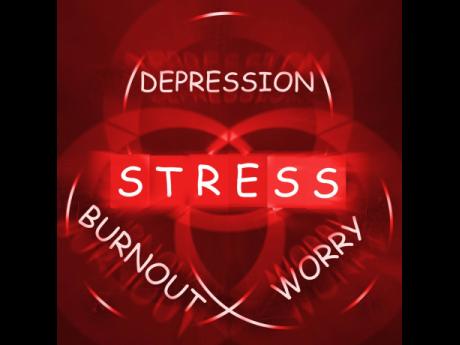Dealing with mental health amid the ‘new normal’
Depression and anxiety are mental health issues that can adversely affect every aspect of a person’s life. Throw in the different changes that have been implemented due to the coronavirus pandemic, and this creates an environment where those who live with mental health issues may have difficulties adjusting to the ‘new normal’.
Justine East-Campbell, associate clinical psychologist, shared that people who suffer from depression may experience symptoms such as sadness, loss of interest in things usually enjoyed, withdrawal from friends and family, irritability, feelings of hopelessness and helplessness, difficulty concentrating, sleeping too much or too little, changes in appetite, and fatigue. To make the situation worse, these symptoms may result in other, sometimes more dangerous, issues,
“Those experiencing depression often also present with comorbid disorders, like substance use disorders involving alcohol and other drugs, which impact other areas of life due to lowered inhibitions when under the influence,” East-Campbell disclosed.
As for anxiety, she shared that this issue has a situational component that resolves the feeling of anxiousness once the reason the person was anxious has passed. However, there are those who have to battle this illness on a daily basis,
“While anxiety can help you in some ways, like meeting deadlines and planning well, for others there may be fear of everyday situations that result in their failure to participate in various activities and loss of opportunities that hinder their progress in life, such as applying for a job, socialising and making friends, and trying something new,” she said.
Many organisations and businesses have put in place a number of adjustments since COVID-19, and in recent times, employees have slowly started going back to work after a few weeks of working from home. In this regard, East-Campbell suggests that being informed could assist with anxiety,
“Persons should take the time to consider what changes may occur when they get back to work before they actually go, so that they can be more prepared. Some employers may send out information about changes but if not, one should ask. This can help reduce anxiety and ensure that one has everything they might need. Being prepared can help make the workplace feel as normal as possible with the changes,” she advised.
There are those, however, who have lost their jobs and are unable to carry out daily responsibilities, or have had to put plans on hold because of the restrictions imposed due to the pandemic; and though things are slowly returning to normal, these people are still being affected one way or another, resulting in stress and anxiety.
In this case, the psychologist shared that accepting that life is always changing and unexpected things will always pop up is the first step to coping.
• Focus on identifying how previously made plans can be altered based on the changes that we are all experiencing.
• Think of new ways to generate income and/or new ways to carry out the plans that you had before.
• Create small, realistic goals and try to realise that for every achievement that is made – even if the ultimate goal hasn’t been achieved yet – you are one step closer.
• Keep trying to be productive rather than trying to wait until things return to the way they were before; we have to keep moving and create a new normal for ourselves.
• Find out what various agencies are offering in terms of financial relief for their customers, such as suspended interest fees, delayed payments and payment plans, etc.
• Ask for help if you need to – which might be from a financial institution, friends or family.
• Prioritise the most essential bills if everything can’t be paid.
• Try to take care of your body by eating healthy foods, exercising and getting enough sleep, and find time to relax despite the stressors – keep reminding yourself that you can’t control everything, you’re doing your best.
• Connect with friends, family and faith-based organisations, and seek professional help for your mental health, if needed – most health centres and many churches have free psychological services, some of which may be available online.

